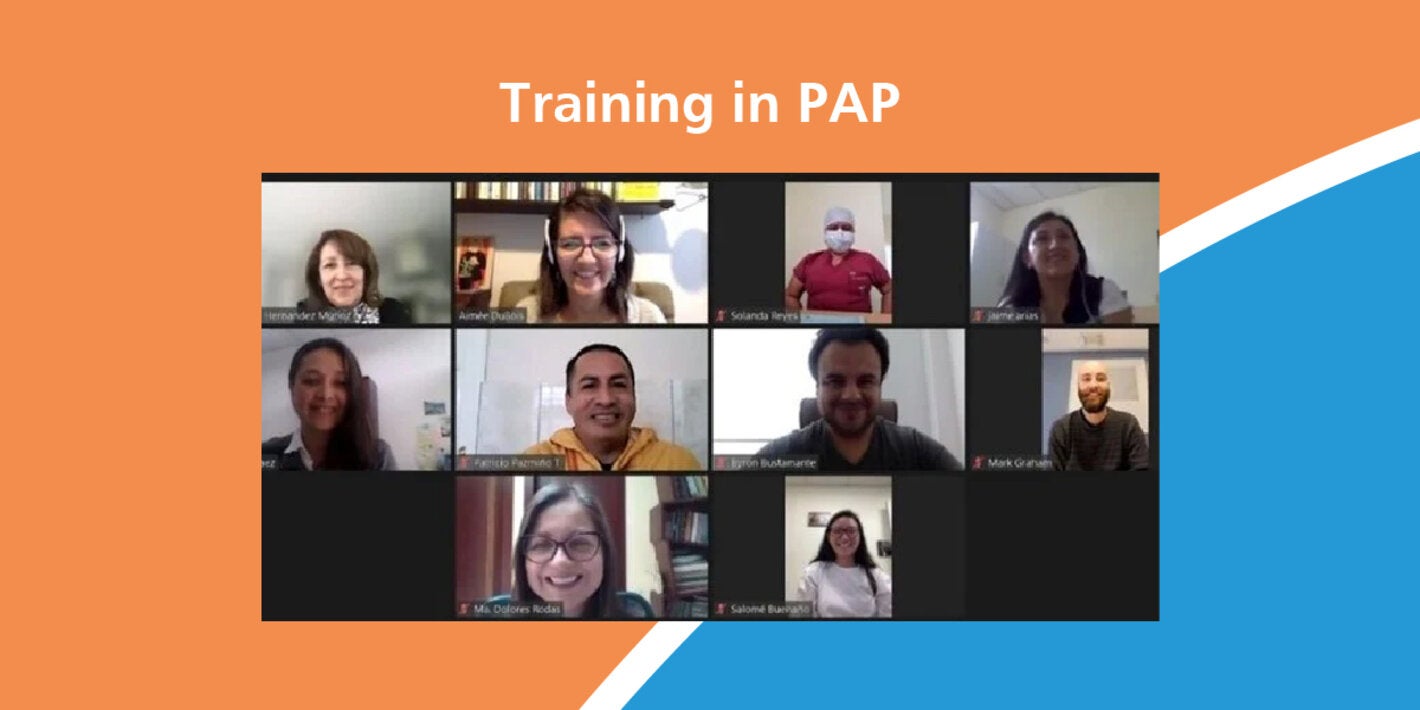
A series of training activities, primarily aimed at educators and health workers, were organized in Ecuador by the Ministry of Health, higher education institutions and the local PAHO/WHO office.
Since May, a training on Psychological First Aid (PAP) has been delivered for 610 tutors and teachers from sixty one higher education institutions. Its purpose is to provide participants with easy-to-use tools that will allow them to detect and give support in crisis situations in the context of the pandemic. PAHO is collaborating with the organization of four webinars to broaden the discussion and frame it within the local context, guided by national and international experts.
Also, in collaboration with the Equinoccial Technical University (UTE), a new training process was launched after an interesting virtual course experience on the mhGAP Humanitarian Intervention Guide (mhGAP-HIG) held with health professionals from all over the country. In close coordination with the Ministry of Health and UNHCR, all 30 participants of the first cohort from the northern border were selected. The objective is to strengthen their capacity to respond to mental health issues, with special emphasis on team care and the creation of a local network. Therefore, the aim is to provide trainees with concrete tools that will allow them to improve their ability to deal with local demands, while easing the burden on services and narrowing the gap in mental health care. A second cohort is planned for the southern border, with the same number of participants. A mixed methodology is being used, where students can take the self-learning course on the general platform and complement it with synchronous sessions on the local platform, with tutorials, case discussions and forums, thus strengthening the network throughout the process.
Finally, PAHO's office in Ecuador has been particularly concerned about the mental health and well-being of its staff. For this reason, it continues with a process of accompaniment, sustained for about a year. This space, with voluntary participation, is a safe place to share experiences and concerns, find ways to improve practice and feel better, in general. In addition, it has become an interesting instrument to strengthen ties between team members in this era where virtuality and physical distancing are a challenge.



